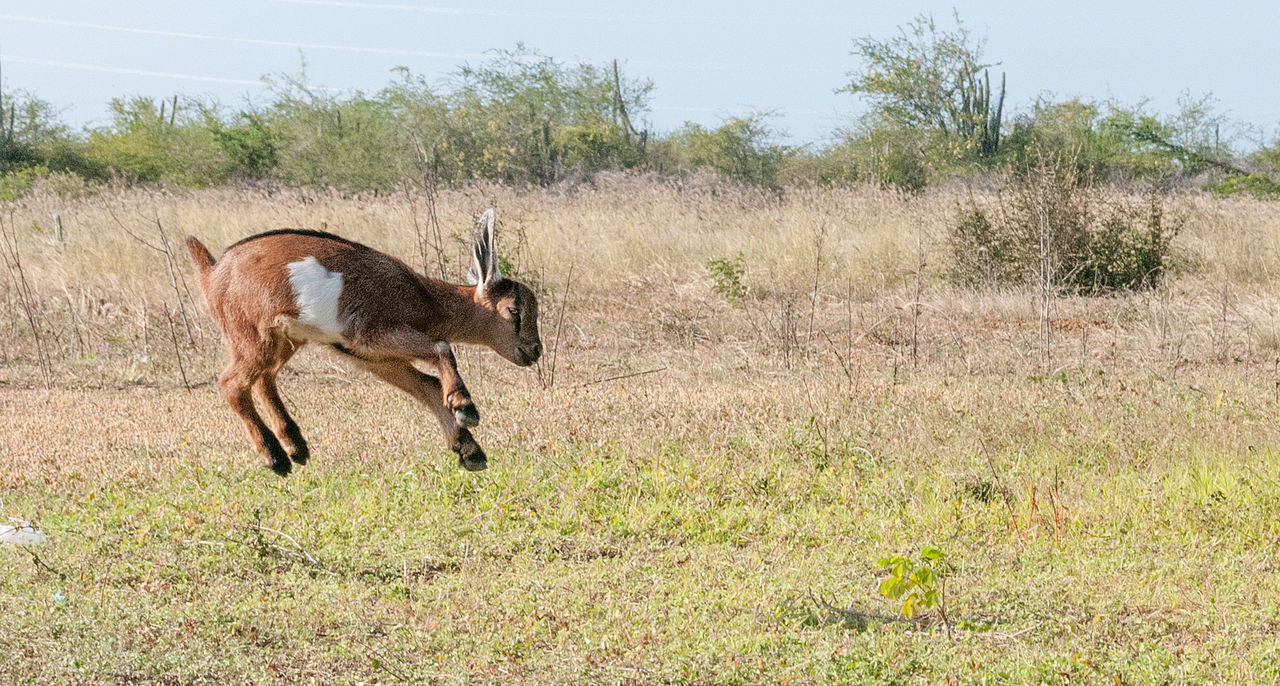It is understandable to view the Passover seder as an experience primarily for children. The service includes interactive rituals, kid-friendly role playing and even a scavenger hunt.
The Passover songs at the end of the evening certainly cement this pediatric impression with their tongue twisters and catchy tunes, especially Had Gadya. The seder’s grand finale relates a seemingly straightforward story about a little goat that meets an untimely end through an almost comical course of events involving a cat, a dog, an ox, a butcher, the angel of death and, ultimately, God. Like any good bedtime story, the song projects a happy ending that reinforces the Almighty’s protecting hand in history.
The animals in Had Gadya remind me of an unforgettable experience I had several years ago in El Salvador as an educator on the American Jewish World Service Alternative Spring Break. I joined scores of college students who dedicated their vacation to tikkun olam, Judaism’s conception of mending the world.
Our week in Central America consisted of assisting local farmers. Gardening had never felt like holy work to me before, but our efforts were infused with meaning. In just a single day of tending to a field, our group accomplished what it would have taken the farmer and his family a month to do.
With your help, My Jewish Learning can provide endless opportunities for learning, connection and discovery.
In the village where we stayed, Ciudad Romero, cattle, goats and chickens roamed the unpaved streets. The villagers were warm and friendly. While our Salvadoran host family was generally reserved and shy, the universal language of smiles created opportunities for connection and openings for conversations, despite our language barriers.
With the “discovery” of the New World, this region’s indigenous population became subjects in their own land. Despite exploitation and oppression, their faith, rooted in Liberation Theology, provides them with a blueprint for redemption. They told us that financial security does not constitute the will of God and, equally important, everyone can improve their lot in life. The spiritual underpinning of their hope, like that of other oppressed people who turned their conquerors’ faith into a vehicle for redemption, is the Jewish people’s Exodus story.
At the Passover seder this very same story becomes our legacy to the next generation. The seder is intended to appeal to children, but it conveys vital messages for all the generations around the table.
This brings us back to Had Gadya at the conclusion of the evening. It is important to note that despite the early exit of the eponymous character, the song never lets us forget about this vulnerable little goat. While the cycle of violence only stops when God intervenes, God’s resolute commitment to fight for society’s most vulnerable remains unflinching – and affirms the oppressed in their quest for freedom.
At the end of the seder each year, with the taste of liberation on our lips, Had Gadya becomes a battle cry for freedom, and this unforgettable little goat beckons us to mend the world one field, one school, one heart at a time.



